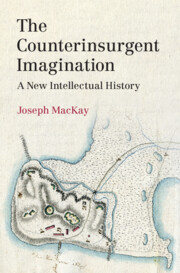2 results

The Counterinsurgent Imagination
- A New Intellectual History
-
- Published online:
- 18 January 2023
- Print publication:
- 05 January 2023
3 - Johann Ewald in America
-
- Book:
- The Counterinsurgent Imagination
- Published online:
- 18 January 2023
- Print publication:
- 05 January 2023, pp 89-119
-
- Chapter
- Export citation

